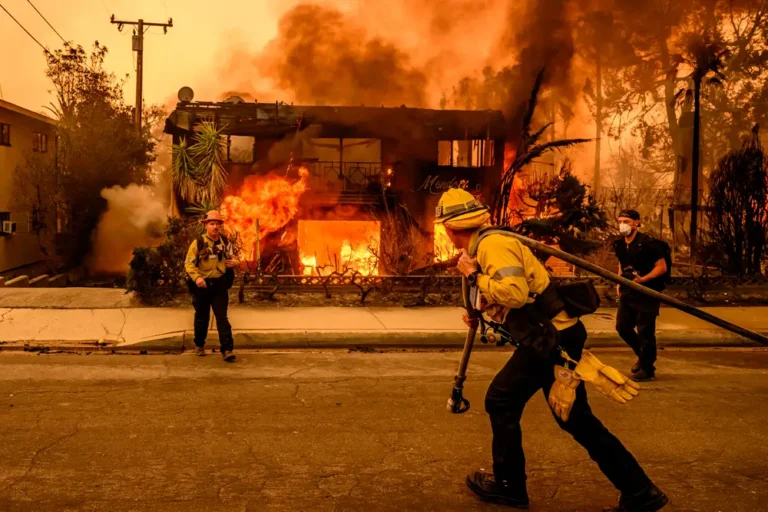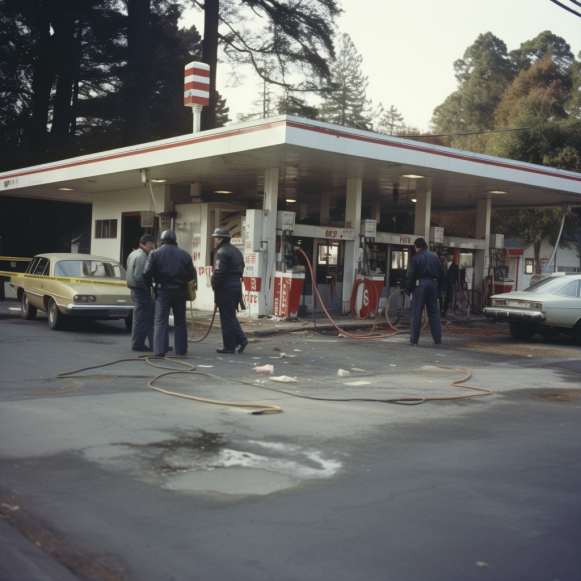California considers permanent ban on watering grass at businesses, even in non-drought years

Office parks, corporate campuses, strip malls would have to remove grass, or face fines of up to $500 a day
The most recent drought in California has ended. Reservoirs are at capacity. The ski season lasted until the end of July.
Despite the wet winter, an effort is gaining traction in the state capitol to add manicured green grass to the list of business trappings that have become obsolete in a changing world, such as fax machines, pagers, and typewriters.
To conserve water during California’s three-year drought, state water regulators prohibited watering “ornamental turf” at corporate, industrial, and government properties with potable water. That emergency regulation is set to expire in June of next year.
The ban would be made permanent by a new bill. AB 1572 would make it illegal for businesses such as office parks, car dealerships, supermarkets, strip malls, or corporate campuses to water decorative grass with drinkable water, regardless of whether California is in a drought. Scofflaws would face daily fines of up to $500.
The prohibition would also apply statewide to factories, industrial sites, and public use properties such as road medians, churches, schools, and universities. Lawns in residential homes, apartment buildings, cemeteries, or any “functional turf” with a recreational use, such as sports fields, golf courses, playgrounds, pet exercise areas, and picnic grounds, would be exempt from the rules.
The bill was approved by the state Assembly on May 31 by a vote of 55-18 and is now moving through the state Senate.
Supporters point out that California has experienced three severe droughts since 2007, and that as the climate continues to warm, it makes no sense to use drinking water on decorative lawns — a landscape that no one eats or uses.
“Droughts are not behind us,” said the measure’s author, Assemblywoman Laura Friedman, D-Burbank. “This bill is focusing on some of the lowest-hanging fruit, such as ornamental grass that consumes a lot of drinking water.” We should be more frugal.”
A long list of environmental organizations, including the Natural Resources Defense Council, Sierra Club California, and Defenders of Wildlife, have endorsed the bill. It recently gained political traction after receiving the support of some of the state’s most powerful water agencies, including the influential Metropolitan Water District of Southern California and the Santa Clara Valley Water District.
Critics argue that the new lawn restrictions fail to recognize that California is a vast state with diverse water sources and weather patterns from Eureka to Palm Springs.
“This was something that was meant for an emergency when we were in the midst of a drought,” said James Gallagher, Republican Assembly leader and Yuba City representative. “This isn’t always the case. Making it a permanent part of our law, I believe, is not the best approach.”
Gallagher believes California should delegate most water decisions to local governments, particularly in non-drought years. He also claimed that state leaders, such as Gov. Gavin Newsom, have done insufficient to build new reservoirs and increase water storage.
“Whether it’s energy, water, or other resources, their strategy is to keep us in a state of perpetual scarcity,” Gallagher said. “Perhaps it’s because it gives them a sense of control.” However, emergency powers should only be used in extreme circumstances.”
The bill was initially opposed by several major business groups, including the California Chamber of Commerce. They dropped their opposition after Friedman made changes to remove apartment complexes, clarify which properties were exempt, and phase in rules beginning Jan. 1, 2027.
“We have some members who are very upset about it. There is some worry. “However, the California Business Properties Association is not actively opposing the bill,” said Matthew Hargrove, president and CEO of the California Business Properties Association.
During the 2012-16 drought, state regulators began cracking down on urban water use under former Gov. Jerry Brown, prompting many office parks and other commercial properties to install water-efficient landscaping. Water-efficient plants and trees are already required by city and state building codes for most new construction.
“Most of the large properties are already doing this stuff,” Hargrove explained. “Well-managed properties strive to be energy and water efficient.” Water, like energy, is an expensive commodity. It’s a financial issue for us.”
Other major business groups, such as the Silicon Valley Leadership Group and the Bay Area Council, are also neutral.
“The writing was on the wall.” “The days of ornamental turf have long passed,” said Adrian Covert, senior vice president of the Bay Area Council.
The bill would allow decorative lawns to remain on commercial, industrial, and government properties if they are watered with recycled water.
It’s difficult to say how much water would be saved. The existing emergency ban is only being enforced by a few cities and water districts. Some cities, such as Morgan Hill, have already passed legislation prohibiting the use of potable water to water decorative turf.
According to a study conducted last year by the Oakland-based nonprofit Pacific Institute, 44% of all urban water used in California, or 2.8 million acre-feet, is used outdoors, primarily for landscape irrigation. The research group discovered that commercial, industrial, and government properties could save at least 340,000 acre-feet of water per year if they used more water-efficient landscaping.
Nevada lawmakers enacted a similar ban for Las Vegas last year. Albuquerque is thinking about building one.
“This is sort of a trend we are seeing across the West as we grapple with a hotter, drier future,” said Heather Cooley, director of research at the Pacific Institute.
“It’s all about stretching our water supply and making it more resilient,” she explained. “If we make these changes now, we can continue to have green spaces, just not lawns everywhere.”




